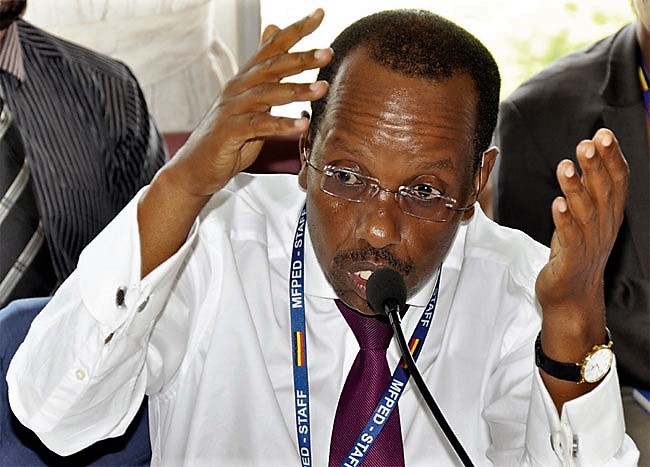Uganda’s economy has come under scrutiny of late. This is because it (the economy) is performing poorly as witnessed by a number of businesses that have closed shop in the last few years. Local companies that have fallen due to a weak economy include but not limited to Crane Bank, WBS, while Steel Rolling Mills and Threeways Shipping Company have since been placed under receivership. Global brands like AON and AIG have also quit the country in the last few months .
Late last year, ratings agency Moody’s downgraded Uganda’s economy to B2, from B1. The key driver for this rating was Uganda’s rising debt burden and failure to absorb borrowed funds.
What Exactly Went Wrong
Uganda’s economy hit a snag in 2011 after the general elections. And the recovery process has been punctuated by both political and economic happenings. The 2011 economic crisis has continued to haunt the economy. In 2012, the National Bank of Commerce (also known as Kigezi) went under, in 2014, Global Trust Bank collapsed and since 2011 the banking sector has suffered huge Non-Performing Loans (NPLs). In 2015, Kenyan supermarket chain, Uchumi closed shop in Uganda and currently, a number of big supermarkets are performing poorly.
In the same year, British Airways ended her 24 years of operating business in Uganda, noting that Uganda was “no longer commercially viable.”
Last year, a number of big companies and top tycoons became financially distressed to the extent of seeking a Shs1trn government bailout. This was after they failed to service their loan obligations that consequently resulted into banks either attaching their properties or placing their companies under receivership.
It should be noted that as a result of excessive expenditure in the 2011 general elections, inflation went up to over 30% and the economy is yet to recover from the effects of this crisis. It was reported that the Bank of Uganda (BoU), the regulator of Uganda’s financial sector printed money that the NRM party used to finance its campaigns. Prof. Emmanuel Tumusiime-Mutebile, the Governor, BoU has since admitted excessive expenditure, but denied BoU printing money.
As inflation hit a record high, banks increased lending rates to as high as 30%, a move that resulted into high NPLs and write-offs that saw the banking sector crumble. Several banks recorded losses while profits drastically reduced. During this time, the Uganda Shilling also hit a record low 2900. It was during this time that BoU introduced a new Monetary Policy-the Central Bank Rate (CBR), a benchmark lending rate for commercial banks. Analysts have since criticized this policy for stifling private sector credit growth, thus reducing economic activity in the country. As the economy was beginning to recover from the 2011 crisis, the Shilling started weakening-largely due to balance of payment deficit, strong demand for the dollar and strong US dollar. This was worsened by the 2016 general elections activities that started way back in 2014. Noteworthy, when the Shilling lost ground in 2015 (the Uganda Shilling lost 27%), commercial banks increased interest rates to an average of 26% and this dampened private sector credit growth.
The situation has been made worse by war in South Sudan, prolonged drought and general slowdown in business activity.
According to analysts, the wobbly economy resulted into tycoons and businesses defaulting on their loans, a move that led to high NPLs in 2015.
NPLs increased to Shs649.4bn in 2015, up from Shs397.7bn in 2014. This situation saw Uganda’s economic growth slowdown to 4.8% for the financial year 2015/16, lower than the projected growth of 5.8% at the beginning of the year. In 2014/15, the economy had grown at 5.0%. Uganda’s economic growth hasn’t been impressive since 2011.
In 2012/13, the economy grew at 3.3% before slightly improving to 4.5% in 2013/14. Earlier in 2010/11, the economy had grown at 6.7%.
According to the World Bank, in the past decade, Uganda has witnessed more economic volatility, and GDP growth has slowed to an average of about 5%.
According to Stephen Kaboyo, an analyst and Managing Director at Alpha Capital Partners, the tight monetary and fiscal policy (through the Central Bank Rate) has affected the growth of the economy.
“Because of the tight fiscal conditions, a number of private sector firms have had to go unpaid for months and this has hurt their cash flows and making it difficult for them to service bank loans. Companies that defaulted lost their properties and many became financially distressed,” Kaboyo said.
Analysts say this has resulted into loss of jobs, loss of revenue, reduced exports and reduced investments.
The already bad situation was made worse by the uncertainty that surrounded the 2016 general elections and the post-election clashes.
“Investors played ‘wait and see’ game as they were not sure of security prior and after elections. Even existing investors couldn’t expand. We also lost on revenue from international tourists due to uncertainty that surrounded elections,” Charles Ocici, a former banker and Managing Director at Enterprise Uganda, said.
Analysts add that government’s decision to allocate the bigger percentage of the budget to infrastructural projects since 2011 has adversely affected the economy in the short run. The government has been allocating about 60% of the total budget to development projects especially construction of dams and roads. However, most of the projects are contracted by foreign countries, a move that has seen trillions of Shillings move out of Uganda.
However, Keith Muhakanizi, the Secretary to the Treasury, who is also the Permanent Secretary at Ministry of Finance, Planning and Economic Development, insists that the economy isn’t broke.
In an earlier interview with this reporter, Muhakanizi admitted that the economy is struggling, but added that the situation is being exaggerated by Kampala elites who are involved in real estate sector that has been hit badly by the current financial meltdown.
“No! Over the last three years, government has been budgeting. There’s what we call approved budget. The big question is or should be; how much did we spend at the end of the year? Did we spend less than what was budgeted? If so, then government is broke, if not, then that’s rumourmongering…We are not broke; we are spending as per the estimates. However, certain things need to be investigated,” he said, denying that government has run broke.
He agrees that aggregate demand of Ugandan goods may have gone down because of South Sudan civil war and reduction in oil prices.
“During South Sudan peak of boom, it (South Sudan) was contributing anywhere between 8-12% of our goods and services, but due to civil war and oil prices (going down); it may have been cut off. We have to deal with these issues ruthlessly.
South Sudan was shopping in Kampala. So that shock has disproportionately hit Kampala and those affected are making a lot of noise. Overall demand of Kampala has probably gone down by like 30%, but not the rest of the country. Traders in Mbarara, Gulu and other upcountry towns are no longer shopping in Kampala; they can go shop in China,” he noted.
He added: “The second shock has hit the real estate sector which is largely dominated by the elite who are making noise, but when agriculture is hit you don’t get such kind of noise.”
Uganda’s economy is expected to recover in 2019, but this will largely depend on government’s interventions such as fighting corruption, absorbing borrowed and budgeted funds and paying its suppliers in time.
World Bank observes that as the economy becomes more resilient and election-related uncertainties recede, economic growth is expected to accelerate to about 5.5% in FY17, and average 6-7% in FY18-20.







We are a gaggle of volunteers and opening a new scheme in our community. Your site offered us with useful info to work on. You’ve done an impressive task and our entire neighborhood will be grateful to you.
royceMr
Well done. It is a good story. I think we need to advocate for policies and laws that can force foreign investors to comply with local content as a measure of strengthening the UGX. Lots of money go out daily unregulated and that puts pressure on our shilling. On the fiscal side, government needs to support critical sectors like Agriculture as well as look for market for the output. Our BOP position needs critical thinkers and implementors to make it better. There shouldn’t be time of just lamenting and not acting.